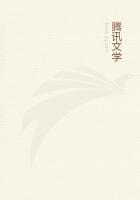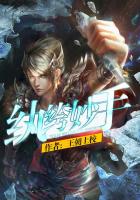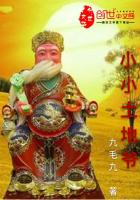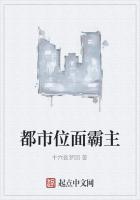It was a decidedly feudal charter, very much like the one granted to Lord Baltimore fifty years before, and yet at the same time it secured civil liberty and representative government to the people.Penn owned all the land and the colonists were to be his tenants.He was compelled, however, to give his people free government.The laws were to be made by him with the assent of the people or their delegates.In practice this of course meant that the people were to elect a legislature and Penn would have a veto, as we now call it, on such acts as the legislature should pass.He had power to appoint magistrates, judges, and some other officers, and to grant pardons.Though, by the charter, proprietor of the province, he usually remained in England and appointed a deputy governor to exercise authority in the colony.In modern phrase, he controlled the executive part of the government and his people controlled the legislative part.
Pennsylvania, besides being the largest in area of the proprietary colonies, was also the most successful, not only from the proprietor's point of view but also from the point of view of the inhabitants.The proprietorships in Maine, New Hampshire, New Jersey, and the Carolinas were largely failures.Maryland was only partially successful; it was not particularly remunerative to its owner, and the Crown deprived him of his control of it for twenty years.Penn, too, was deprived of the control of Pennsylvania by William III but for only about two years.Except for this brief interval (1692-1694), Penn and his sons after him held their province down to the time of the American Revolution in 1776, a period of ninety-four years.
A feudal proprietorship, collecting rents from all the people, seems to modern minds grievously wrong in theory, and yet it would be very difficult to show that it proved onerous in practice.Under it the people of Pennsylvania flourished in wealth, peace, and happiness.Penn won undying fame for the liberal principles of his feudal enterprise.His expenses in England were so great and his quitrents always so much in arrears that he was seldom out of debt.But his children grew rich from the province.As in other provinces that were not feudal there were disputes between the people and the proprietors; but there was not so much general dissatisfaction as might have been expected.The proprietors were on the whole not altogether disliked.In the American Revolution, when the people could have confiscated everything in Pennsylvania belonging to the proprietary family, they not only left them in possession of a large part of their land, but paid them handsomely for the part that was taken.
After Penn had secured his charter in 1681, he obtained from the Duke of York the land now included in the State of Delaware.He advertised for colonists, and began selling land at 100 pounds for five thousand acres and annually thereafter a shilling quitrent for every hundred acres.He drew up a constitution or frame of government, as he called it, after wide and earnest consultation with many, including the famous Algernon Sydney.
Among the Penn papers in the Historical Society of Pennsylvania is a collection of about twenty preliminary drafts.Beginning with one which erected a government by a landed aristocracy, they became more and more liberal, until in the end his frame was very much like the most liberal government of the other English colonies in America.He had a council and an assembly, both elected by the people.The council, however, was very large, had seventy-two members, and was more like an upper house of the Legislature than the usual colonial governor's council.The council also had the sole right of proposing legislation, and the assembly could merely accept or reject its proposals.This was a new idea, and it worked so badly in practice that in the end the province went to the opposite extreme and had no council or upper house of the Legislature at all.
Penn's frame of government contained, however, a provision for its own amendment.This was a new idea and proved to be so happy that it is now found in all American constitutions.His method of impeachment by which the lower house was to bring in the charge and the upper house was to try it has also been universally adopted.His view that an unconstitutional law is void was a step towards our modern system.The next step, giving the courts power to declare a law unconstitutional, was not taken until one hundred years after his time.With the advice and assistance of some of those who were going out to his colony he prepared a code of laws which contained many of the advanced ideas of the Quakers.Capital punishment was to be confined to murder and treason, instead of being applied as in England to a host of minor offenses.The property of murderers, instead of being forfeited to the State, was to be divided among the next of kin of the victim and of the criminal.Religious liberty was established as it had been in Rhode Island and the Jerseys.All children were to be taught a useful trade.Oaths in judicial proceedings were not required.All prisons were to be workhouses and places of reformation instead of dungeons of dirt, idleness, and disease.This attempt to improve the prisons inaugurated a movement of great importance in the modern world in which the part played by the Quakers is too often forgotten.
Penn had now started his "Holy Experiment," as he called his enterprise in Pennsylvania, by which he intended to prove that religious liberty was not only right, but that agriculture, commerce, and all arts and refinements of life would flourish under it.He would break the delusion that prosperity and morals were possible only under some one particular faith established by law.He, would prove that government could be carried on without war and without oaths, and that primitive Christianity could be maintained without a hireling ministry, without persecution, without ridiculous dogmas or ritual, sustained only by its own innate power and the inward light.

